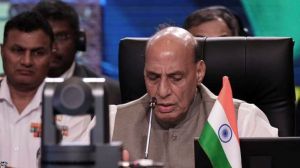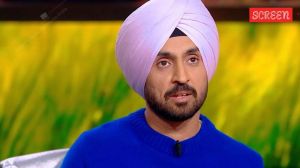Stay updated with the latest - Click here to follow us on Instagram
Sri Lanka’s presidential election first, parliamentary polls later: President Wickremesinghe
Sources confirmed that he told the Cabinet meeting earlier in the day that financial allocations have only been reserved so far for the conduct of the presidential poll.
 Former President Ranil Wickremesinghe (FILE Photo)
Former President Ranil Wickremesinghe (FILE Photo)President Ranil Wickremesinghe on Wednesday reiterated his intention to hold the next Sri Lanka’s presidential election this year ahead of the parliamentary election.
Sources confirmed that he told the Cabinet meeting earlier in the day that financial allocations have only been reserved so far for the conduct of the presidential poll.
Despite speculation that a General Election will precede a Presidential election, Wickremesinghe informed the Cabinet that the Presidential election will be held first this year.
According to the Election Act, the presidential election should happen first. The next parliamentary election is not due before August 2025.
The Elections Commission earlier this month said the presidential election would be conducted at a date between September 17 and October 16.
The ruling Sri Lanka People’s Front, commonly known by its Sinhalese name Sri Lanka Podujana Peramuna (SLPP), which has the current parliamentary majority, had pressed Wickremesinghe to hold the parliamentary election ahead of the presidential poll.
Wickremesinghe, 75, is yet to announce his candidacy despite declarations by two other main opposition leaders: Sajith Premadasa the main opposition leader, and the Marxist JVP leader Anura Kumara Dissanayake.
Wickremesinghe, from the arch-rival party United National Party (UNP), succeeded SLPP-elected president Gotabaya Rajapaksa to become president for the rest of Rajapaksa’s term when the latter was ousted, after the island nation declared first international default, during street protests which lasted between April and July of 2022.
Rajapaksa gave in to calls for his resignation due to his inability to handle the unprecedented economic crisis.
The Rajapaksa administration announced Sri Lanka’s first-ever sovereign default as forex shortages caused long queues for essentials and fuel.
Wickremesinghe since taking over has steered the economy to safety by securing an IMF bailout. Analysts, however, feel that Sri Lanka is not completely out of the woods yet.






- 01
- 02
- 03
- 04
- 05

























